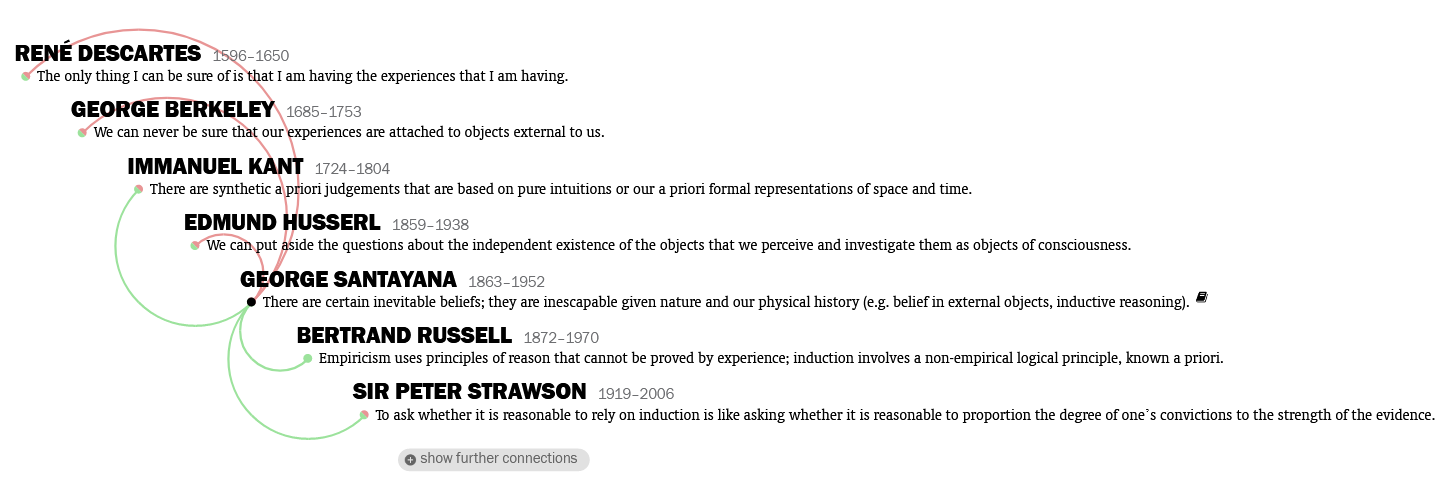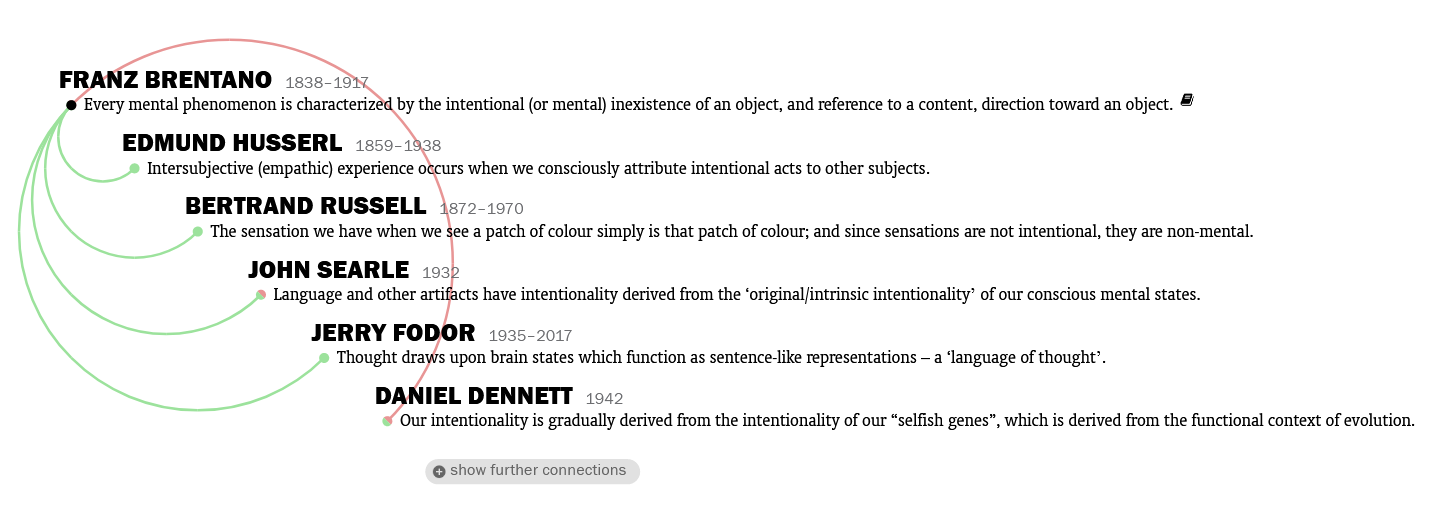Eubulides, Paley, Brentano, Bradley, Santayana, McTaggart Added; Aristotle, Mill, Frege, Russell, and Others Updated
Here is what I’ve done since the last update:
- Eubulides, William Paley, Franz Brentano, Francis Herbert Bradley, George Santayana, and John Ellis McTaggart are added.
- Bertrand Russell got a substantive revision with 18 new sentences.
- New sentences are added for Zeno of Elea, Aristotle (2), Thomas Aquinas, Thomas Hobbes, Gottfried Wilhelm Leibniz, John Stuart Mill (3), Gottlob Frege (2), Edmund Husserl, Martin Heidegger, Sir Peter Strawson, Robert Nozick.
- Dozens of new connections are drawn.
In addition to the new names, I spent a lot of time to enrich the content for Bertrand Russell. I concentrated on him and his connections to the British idealists (Bradley, McTaggart) for a few weeks. With 18 new sentences (some of which are integrated with old ones), I was able to include his objection to Frege’s use of sets to construe numbers (Russell’s Paradox), his doctrine of external relations, his logical atomism, his neutral monism, his bundle theory of particulars, and his ethical noncognitivism, among other things. He now has 23 sentences referencing 8 different sources. (A note: I’m not just picking out sentences from the texts I read and putting them in; I put a lot of effort and time into optimizing them in the next step, so as to include all of their ideas with the minimum number of efficient sentences, in a meaningful order. So when the number is high for a philosopher, it’s because I had the opportunity to study them thoroughly and they had a lot of ideas.)





With this update, I also put together a thread including a specific line of arguments for/against the existence of God, with Paley as an important step leading to Darwin,

introduced Nozick’s “experience machine” as an argument against utilitarianism,

and added Brentano’s original formulation of intentionality as a quality which separates the mental from the non-mental. (And Dennett can be said to disagree with it because he treats intentionality – like many other things – as a gradual phenomenon deriving from non-mental stuff.)
Subscribe to Updates
Follow & Support
RECENT UPDATES
- Poincaré, Eddington, Gombrich, Laudan, Van Fraassen, Worrall, Ladyman Added; Anselm, Duhem, Grice, Williams, Kripke, Lewis, Boyd, and Others Updated
- ‘Basics’ Filter for the Uninitiated
- Reid, Barthes, Habermas, Varela Added; Leibniz, Kant, Ramsey, Sartre, Beauvoir, Foot, Clark, and Others Updated
- Dynamic URLs
- Getting Help From AI to Tag Sentences
- Interface & Content Upgrade: Tags, Improved Search, Dark Mode, and More

